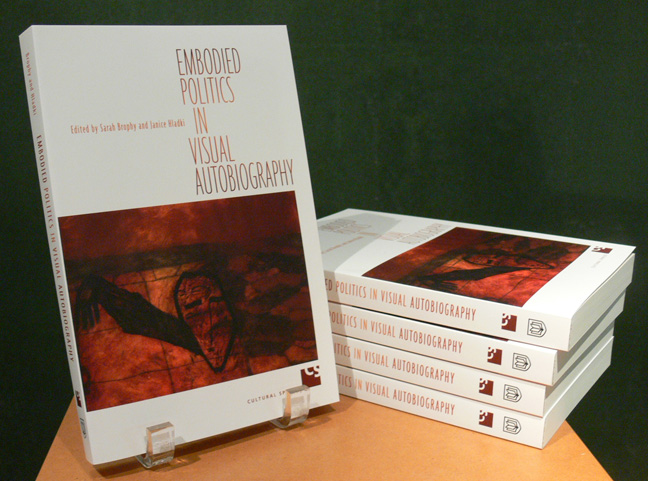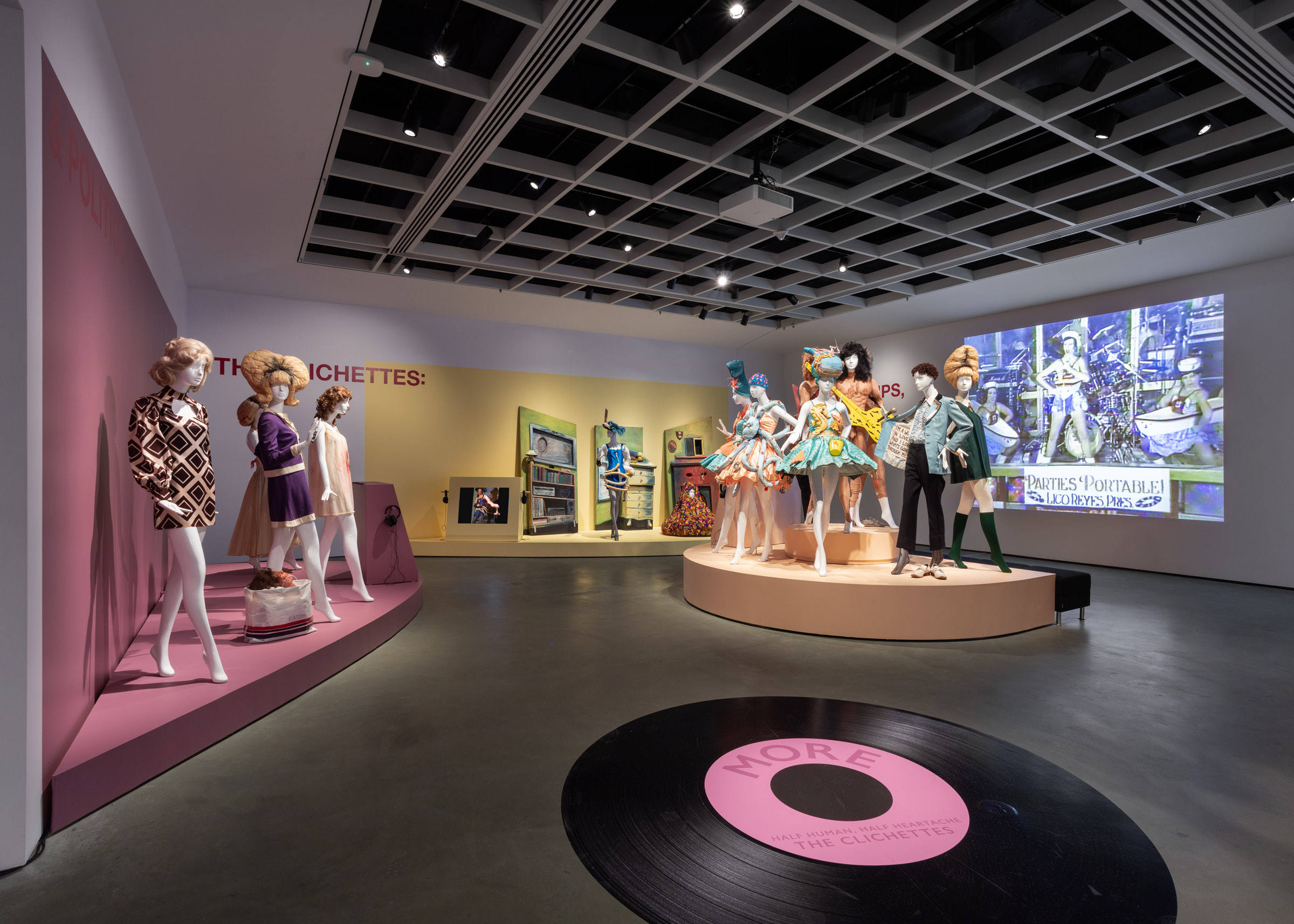Embodied Politics in Visual Autobiography: BOOK LAUNCH
November 6, 2014

This evening’s celebration at the McMaster Museum of Art 6-8 pm launches both a new exhibition and a book by the exhibition’s co-curators:
Embodied Politics in Visual Autobiography
Sarah Brophy is an associate professor in the Department of English and Cultural Studies at McMaster University.
Janice Hladki is an associate professor of Theatre and Film Studies in the School of the Arts at McMaster University.
From reality television to film, performance, and video art, autobiography is everywhere in today’s image-obsessed age. With contributions by both artists and scholars, Embodied Politics in Visual Autobiography is a unique examination of visual autobiography’s involvement in the global cultural politics of health, disability, and the body. This provocative collection looks at images of selfhood and embodiment in a variety of media and with a particular focus on bodily identities and practices that challenge the norm: a pregnant man in cyberspace, a fat activist performance troupe, indigenous artists intervening in museums, transnational selves who connect disability to war, and many more.
The chapters in Embodied Politics in Visual Autobiography reflect several different theoretical approaches but share a common concern with the ways in which visual culture can generate resistance, critique, and creative interventions. With contributions that investigate digital media, installation art, graphic memoir, performance, film, reality television, photography, and video art, the collection offers a wide-ranging critical account of what is clearly becoming one of the most important issues in contemporary culture.
CONTENTS
Introduction. Visual Autobiography in the Frame: Critical Embodiment and Cultural Pedagogy (Sarah Brophy and Janice Hladki)
I: Proliferating Monstrosity
2. Quickening Paternity: Cyberspace, Surveillance, and the Performance of Male Pregnancy (Sayantani DasGupta)
3. “Virtual” Autobiography? Anorexia, Obsession, and Calvin Klein (Mebbie Bell)
4. Big Judy: Fatness, Shame, and the Hybrid Autobiography (Allyson Mitchell)
II: Rupture and Recognition: Body Re-Formations
5. Sex Traitors: Autoethnography by Straight Men (Richard Fung)
6. Looks Can Be Deceiving: Exploring Transsexual Body Alchemy through a Neoliberal Lens (Dan Irving)
7. Visceral (Auto)biographies: Plastic Surgery and Gender in Reality TV (Simon Strick)

III: Interior Lives: Conditions of Persistence and Survival
8. My Life as a Museum, or, Performing Indigenous Epistemologies (Peter Morin)
9. Gut Reactions: Mona Hatoum’s Corps étranger (Kim Sawchuk)
10. “Please Don’t Let Me Be Like This!”: Un-wounding Photographic Representations by Persons with Intellectual Disability (Ann Fudge Schormans and Adrienne Chambon)
11. “Why should our bodies end at the skin?” Cancer Pathography, Comics, and Embodiment (Laura McGavin)
IV: Spectatorship and Historical Memory: The Ethics of Critical Embodiment
12. Witnessing Genocide and the Challenges of Ethical Spectatorship (Wendy Kozol)
13. Digital Melancholia: Archived Bodies in Carmin Karasic’sWith Liberty and Justice for All(Sheila Petty)
14. Connective Tissue: Summoning the Spectator to Visual Autobiography (Sarah Brophy and Janice Hladki)

McMaster Museum of Art wins Exhibition of the Year for The Clichettes: Lips, Wigs and Politics
December 2, 2025
On Monday, December 1, 2025, Galeries Ontario / Ontario Galleries (GOG) announced the winners of the 48th Annual GOG Awards and the McMaster Museum of Art (M(M)A) took away the top award for the Exhibition of the Year (Budget Over $50K) for the Fall 2024 exhibition The Clichettes: Lips, Wigs and Politics produced in partnership […]

The Creative Process: Well-being through art with the McMaster Museum of Art
August 22, 2025

McMaster Museum of Art Welcomes New Communications Officer Jeff Jung Sing Chow
July 11, 2025





